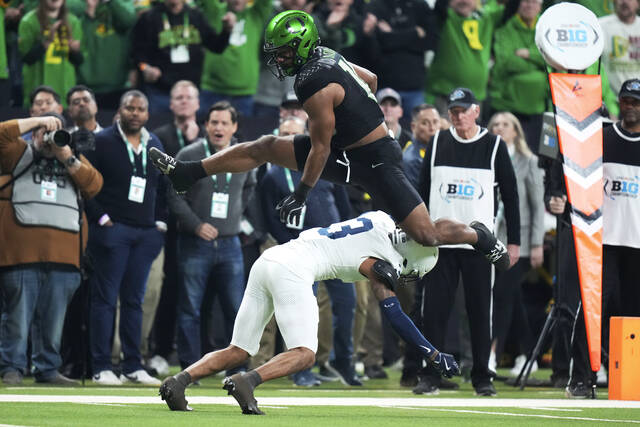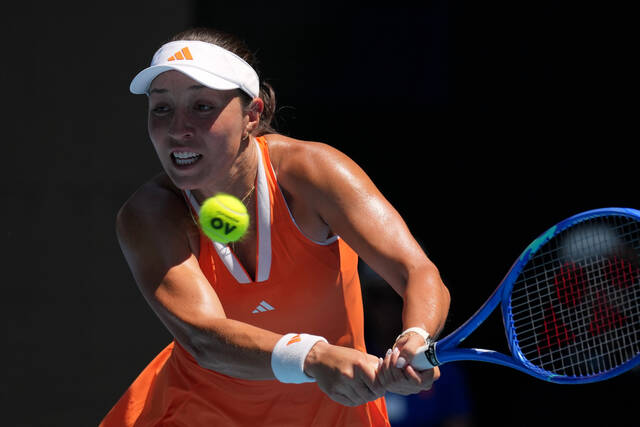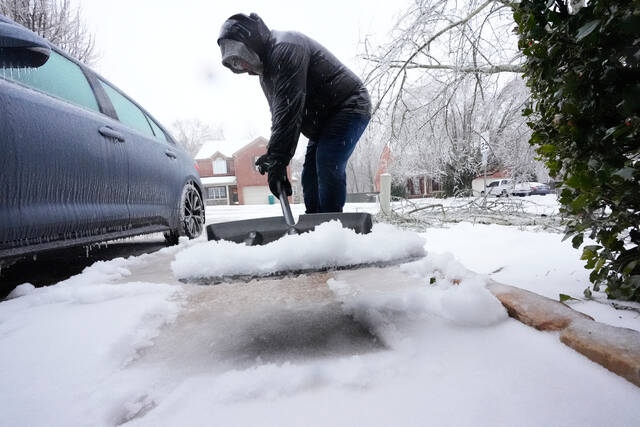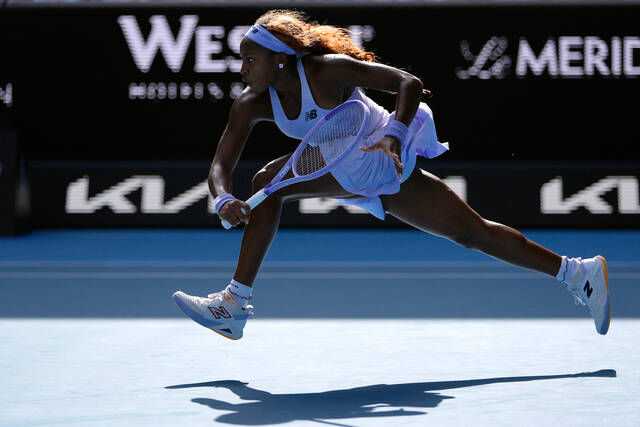The 12-team College Football Playoff begins Friday. I’d like to be more excited about it than I am.
That’s probably because three of the first-round CFP contests are occurring on a Pittsburgh Steelers’ game day. The lone game I’ll definitely get to watch is the Friday night opener between No. 7 Notre Dame and No. 10 Indiana.
Quite frankly, that one only becomes interesting if Indiana is winning late and in danger of upsetting the Fighting Irish. If I had something better to do, I might rely on phone updates to tell me if it was worth picking up the clicker.
Meanwhile, if Notre Dame was playing Indiana in a 7-10 game to tip off the first round of the NCAA Men’s Basketball Tournament at 12:25 p.m. on the opening Thursday of March Madness, I’d be watching with a beer in one hand and a chicken wing in the other because I would’ve taken the whole day off to soak in all the games.
That’s because, for now, (until they mess it up by expanding the field), March Madness is still great.
The college football playoff is … eh, we’ll see. Hopefully the games themselves will overcome the planning. Maybe once the ball is kicked, I’ll feel more engaged.
The lead-up to the event, though, has been lackluster. That’s coming from someone who has been a long-time advocate for a playoff format that expanded beyond the previous four-team model.
Eight teams would’ve been perfect. Sixteen teams would’ve at least been more streamlined.
This 12-team format is clunky, convoluted and flawed. So, of course, that’s why college football’s power brokers adopted it. It’s right on brand.
To be fair, this has been a really rough year for something like this to debut. Throughout the country, 13-0 Oregon has felt like the only true powerhouse. Everyone else in the field has proven themselves to be remarkably and repeatedly flawed.
No. 3 Boise State may be an exception to that claim. Their only loss was 37-34 to Oregon. But coming out of the Group of Five Mountain West, in a normal year, even at 12-1, you’d think they’d be a No. 5 or No. 6 seed.
But No. 3 with a bye? Really?
Related
• First Call: Ravens TE praises fans for keeping Terrible Towels in Pittsburgh; Baltimore injuries to watch
• Penn State DE Abdul Carter believes he's the 'best player' in college football
• SMU coach Rhett Lashlee downplays Penn State's cold-weather competitive advantage
That just shows how disjointed of a college football year this has been and how many hiccups there could be in the seeding process. The four highest-ranked conference champions get byes, and the five highest-ranked champs get auto-bids. So Arizona State got a bye, too, despite being ranked 12th. Yet, they are seeded fourth at 11-2 as Big 12 champions in their first year of conference membership.
That feels weird.
The seeding process wasn’t the only problem in the new playoff’s debut. How the committee ended up seeding the teams was also an issue. I’m not hung up on Alabama being left out. They were 9-3. Get over it, Crimson Tide fans.
But Penn State, as a six-seed, needs only to beat SMU at home and Boise State to reach the Final Four. Meanwhile, Notre Dame has to hold off Indiana and then beat Georgia. Oregon needs to knock off either Tennessee or Ohio State after its bye. That is poorly thought out.
Even those complaints I can live with. The imperfections of the NCAA hoops bracket are annual fodder that makes the hype fun. My bigger gripe is the lack of stakes that are now apparent in college football. There seems to be very little price to pay for late-season losses.
At 10-3, 16th-ranked Clemson is getting in just because Syracuse happened to upset Miami. That seems wrong.
Ohio State getting a home game against Tennessee after losing to a 7-5 Michigan team is borderline criminal. Notre Dame doesn’t even have to play in a conference, let alone a conference title game, and they are a No. 7 seed with a home game. Yet Iowa State had to play a conference championship game and lost and never had a prayer of qualifying without the auto bid.
However, Penn State, SMU and Texas all lost conference title games and got in — with Penn State and Texas getting home games.
So much for all the romance of college football’s weekly do-or-die regular season. That’s out the window.
Another unintended consequence — or, perhaps better said, “overlooked reality” — is the difficulty some of these teams who are playing at home will have to fill their stadiums.
It’s between semesters at a lot of campuses. Students are gone. It’s four days before Christmas. It’s supposed to be well below freezing in Happy Valley, South Bend and Columbus.
I’m sure many college football fans didn’t budget for an extra road trip (let alone, potentially, three of them) or even another return back to campus. That gets expensive. According to The Athletic, Dallas to Beaver Stadium for SMU fans is a $3,300 round trip per person for flights, tickets, a hotel room, parking and a rental car.
It’s winter graduation weekend at State College. Hotels are scarce. People are booking rooms 90 minutes away. As of Wednesday, there were reports of less than 80,000 tickets sold for a stadium that holds 106,572.
And, in terms of television ratings, what is “John Q. Football Fan” in Boston, Washington, New York, L.A., Chicago, Miami, Denver, Seattle and Phoenix going to watch? Texans-Chiefs and Steelers-Ravens, or SMU-Penn State and Clemson-Texas?
Hey, it’s fantasy football playoff time. Who are more people worried about? Lamar Jackson and Patrick Mahomes? Or Drew Allar and Cade Klubnik?
Again, many of the issues facing the CFP in 2024-25 may not be present in 2025-26. Some of the problems are the result of circumstances beyond their control.
Some others, though, appear to be related to a lack of foresight and planning.
Given college football’s checkered history in that regard — especially when it comes to crowning a national champion — should we really be surprised?








